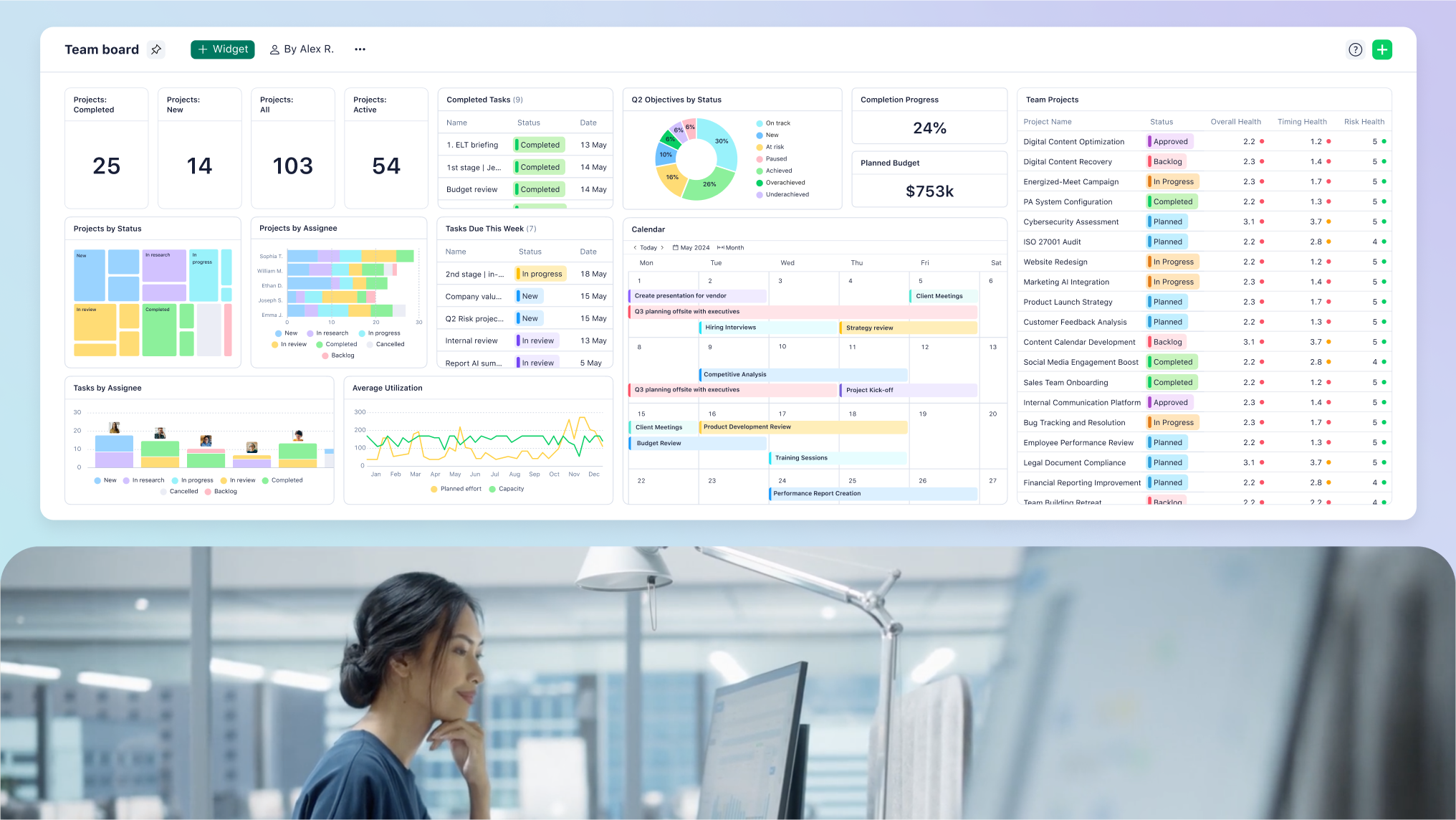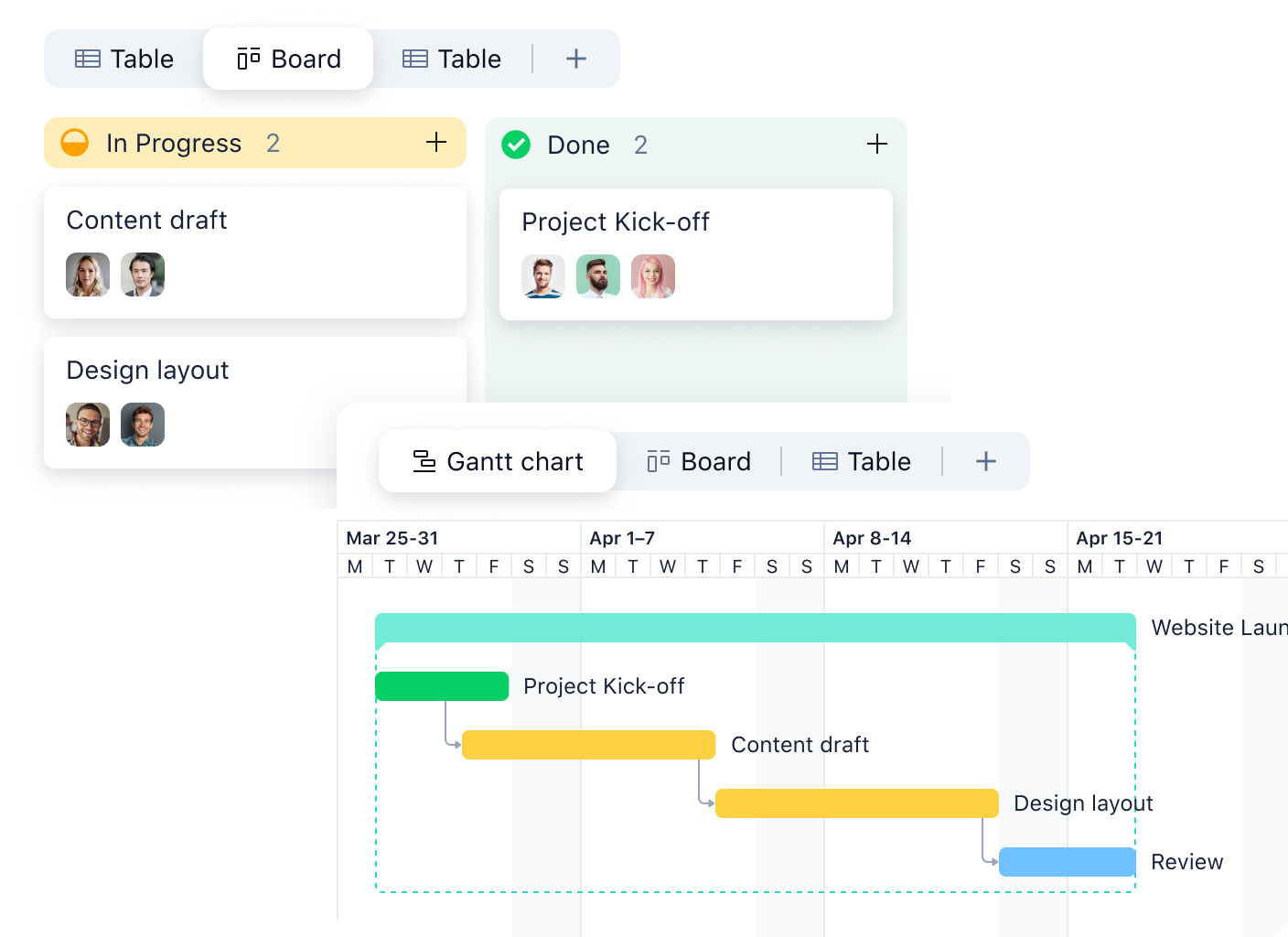Wrike’s marketing management software helps work flow
No matter how many teams are involved or how complex the work is, Wrike’s marketing management software tools can handle it.
Free 14-day trial, No credit card required

Wrike’s marketing management software helps work flow
No matter how many teams are involved or how complex the work is, Wrike’s marketing management software tools can handle it.
Free 14-day trial, No credit card required

Trusted by 20,000+ happy customers worldwide
Your all-in-one marketing solution

Integrated workflows for every marketing team and agency
Today’s marketing workforce is such that everyone has a stake in the game. Explore how to use Wrike’s marketing management software to help all teams succeed.

Are your campaigns agile enough to pivot quickly? Wrike accelerates everything with visual collaboration, seamless integrations, built-in proofing, and instant campaign analytics so you can adjust quickly to maximize ROI.

You focus on the creativity, we’ll streamline the workflows. Use our Adobe Creative Cloud extension for easy editing. Lean on AI to save time, and deliver top-quality, on-brand assets faster. Keep the whole team on track.

Do you feel fully in control before every event? You will with Wrike. Get complete visibility for seamless execution of all event details, including asset creation, logistics, and budget management.

Accelerate speed to market through true operational efficiency. Monitor resources in real time across all projects, easily see who has bandwidth, and quickly shift to achieve on-target delivery.
Optimize all your marketing workflows with Wrike
Connect the entire campaign process, from planning to execution. Adjust quickly as needed and optimize every touchpoint with Wrike’s marketing workflow features.
Strategy and Planning
Keep everyone in the loop — internally and externally

Resource Management
Easily balance workloads and get to market faster
Wrike accelerates time to market, helping you deliver campaigns on time, every time. Gauge capacity, allocate resources, and assign tasks effectively with easy-to-use dependencies and timelines for every workflow.

Campaign production
Kick off work fast and track progress in real time

Design and Creative Assets
Approve creative assets in minutes
Wrike is the one-stop platform for creative teams. Design assets in our extension for Adobe Creative Cloud, edit text documents, and share feedback without leaving Wrike. Auto-generate briefs from creative request forms and never miss deadlines.

Report and analyze
Access instant insights and analytics
Use dashboards for real-time insight into all your marketing workflows. Integrations with Google Ads, Facebook, and more offer instant visibility into campaign performance. Dive into individual campaign and channel performance to optimize overall strategy.

Fast-track success with ready-to-go marketing templates
Help busy teams save time. Wrike’s instant-download templates were designed by marketing experts to make great work uniform, fast, and effortless.

Wrike’s campaign management plan template has everything you need to design, launch, and track campaigns. Simplify complex projects, measure performance metrics, and issue reports in seconds.

Plan, launch, and deliver unforgettable events with our all-in-one planning template. Break projects into manageable stages, assign due dates, and visualize your countdown on a shared team timeline.

Make your path to product launch stress-free. As the best marketing project management software, Wrike helps you optimize workloads, align resources, and monitor your go-to-market progress.

Recharge your creative asset production process with our powerful template. Streamline your creative requests, customize your team workflows, keep track of your assets, and deliver projects on time.
more efficient in processes and workflows
faster project completion
“I use Wrike for everything that we do now ... organizing projects, assigning different tasks, calendar views, and Gantt charts. We use it to map out all of our marketing campaigns. It’s all personalized to how we work.”

“Everything I see in Wrike is live and in its current status which is a big plus for me. We can jump on the job, look at the last couple of comments, and pick up the ball up and run with it from there.”

“If we didn’t have Wrike, I cannot imagine how we would have managed to rollout the new website redesign. If we had to coordinate through email, it would have been incredibly painful.”

less time to deliver projects
reduction in emails
“Wrike is an incredibly intuitive tool that allows easy recording, reporting, and project management — while not being too scary for creatives to use.”

Integrate your favorite tools with Wrike for Marketers
Wrike integrates smoothly with marketers’ favorite tools, including MS Teams, DAM, Adobe CC, and 400+ other applications. You can create custom integrations, sync your data, and fully automate your workflows.
Photoshop
Illustrator
InDesign
Premiere Pro
Adobe XD
Bynder
MediaValet
Tenovos
Canto
Mailchimp
Dropbox
Photoshop
Illustrator
InDesign
Premiere Pro
Adobe XD
Bynder
MediaValet
Tenovos
Canto
Mailchimp
Dropbox
Unbounce
Miro
Google Calendar
Google Drive
Google Sheets
SurveyMonkey
Clearbit
GoTo Webinar
Insightly
WordPress
Shopify
Unbounce
Miro
Google Calendar
Google Drive
Google Sheets
SurveyMonkey
Clearbit
GoTo Webinar
Insightly
WordPress
Shopify

Create, collaborate, and deliver in one powerful platform
Wrike’s marketing management software makes sophisticated marketing workflows effortless.

